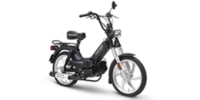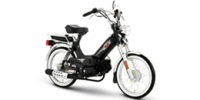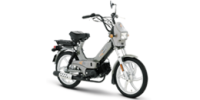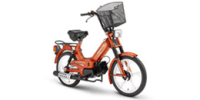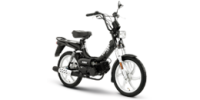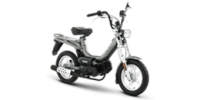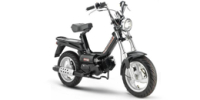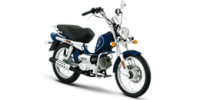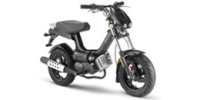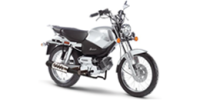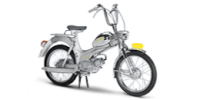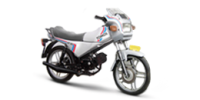
Pistons come in many different varieties. Important factors of a piston are:
- Piston diameter + tolerance. The diameter of the piston naturally depends on the diameter of the cylinder. An original Puch cylinder has a diameter of 38 millimetres throughout.
- Piston height. If the overall height of the piston is not correct, there is a chance that the coil ports will not open all the way. If the piston is too short, the coil ports open too fast and the timing is wrong.
- Piston pin diameter. The diameter of the piston pin depends on the diameter of the piston pin hole in the crankshaft. Most Puch models have a needle bearing in which the piston pin hinges. Older Puch models have a bronze bushing in the crankshaft where the piston pin hinges. The inner diameter of the bushing or needle bearing is 10 or 12 millimetres. So you then also need a 10 or 12 millimetre piston pin.
- Size of the piston rings. A new piston always comes with a piston spring or set of piston rings. So the size of the spring or springs belongs to that piston. At higher revs, e.g. for race/cross/sprint use, it is advisable to always check the piston lock play. Push the piston ring into the cylinder and make sure it is straight. Then measure the intermediate dimension with a feeler gauge. This should then meet the specified size for that application.
- Some pistons are equipped with an L spring, which is shaped like an L. This is also called a top spring and is often used at higher speeds.
- Reed valve or regular intake. In a diaphragm cylinder, the piston has an opening, we also call this a "window" in the piston. In a regular intake, the piston is closed or there are small holes at the top.
In faster engines, the piston clearance comes very precisely. By piston play, we mean the difference between the diameter of the cylinder and the piston. This size is often indicated with a tolerance, an A / B or C tolerance. Often the size difference is between 0.02 millimetres and 0.06 millimetres. This difference depends on the material of the cylinder wall and the application of the piston + cylinder.
If the piston clearance is too small, the piston will clamp at higher revs. If the piston clearance is too large, there will be a loss of compression.
Different locks are also used in piston. By these locks, we mean a pin on which the piston spring closes. There are A / B / C locks. The different locks are shown below. Our webshop only sells piston springs with a B or C lock:

An A lock is actually an inverted C lock. The spring then closes above the pin instead of below it.

